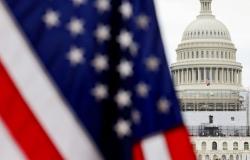Featured topic of the week
In an interview with Time magazine, President Lai Ching-te said that Taiwan is now independent. The complete interview was published on June 13 by the Presidential Office. The dialogue between the Taiwanese president focused on leadership principles, as well as his views on international cooperation, cross-Strait issues, economic development, global supply chains and social issues. Nevertheless, When asked to respond to criticism for stating in his inaugural speech that China and Taiwan are not subordinate to each other, Lao said he was not the first person to express this truth, citing previous speeches by Tsai Ing-wen and Ma Ying-wen. jeou.
He argued that Because Taiwan has its “own citizens, land, sovereignty and government for decades,” Taiwan is a sovereign and independent country under international law. With this in mind, Lai expressed that his goal during his term is to “unite the people of Taiwan.” Lai said all political parties should understand that “China’s ambition to annex Taiwan is part of its national policy.” Lai said that only by uniting at the national level and strengthening global ties “can we maintain our sovereignty, freedom and democratic way of life.”
Context observations
- President Lai Ching-te on Thursday called for greater economic and trade cooperation between Taiwan and the United States. “Deepen our connections in [comercio y economía] It will benefit people on both sides and ensure supply chain security,” Lai said before a closed-door meeting with former US Deputy National Security Advisor Matt Pottinger. In particular, Lai said he looked forward to the resolution of the double taxation issue as well as progress in negotiations under the US-Taiwan Initiative on 21st Century Trade.
- The first Taiwan Expo in Europe opened on Monday in Berlin, where more than 100 Taiwanese companies and their European counterparts sought to cooperate mainly in the digital sector.. The three-day exhibition in the German capital focuses on digital transition opportunities in the European Union and is estimated to generate more than $50 million. According to the Taiwan government, The EU is Taiwan’s largest source of foreign investment, representing more than a quarter of the country’s total foreign direct investment. Taiwan is the EU’s 12th largest trading partner, while the EU is Taiwan’s fourth largest global partner.
- Overseas Taiwanese citizens held a rally in Paris on Sunday in support of the recent “Blue Bird Movement.” The demonstration that showed their support for Taiwan in the next Olympic Games, participants chanted slogans in support of Taiwan and their opposition to what they consider an abuse of power by the Legislature. The Blue Bird Movement emerged after the KMT and TPP joined forces to pass amendments in May that would give lawmakers greater investigative powers.
- Guatemalan President Bernardo Arévalo expressed his hope to form a strategic alliance with Taiwan to boost Guatemalan industries during a visit to a bamboo processing and research center operated by the Taiwan Technical Mission. Arévalo said he was interested in technical cooperation projects with Taiwan and the concept of carbon trading. The technical mission said the bamboo processing center aims to help Guatemalan bamboo producers increase their value.
- The Swiss newspaper Neue Zercher Zeitung (NZZ) interviewed the president of Palau, Surangel Whipps Jr., who spoke about the importance of diplomatic relations with Taiwan. Whipps confirmed that China has used economic coercion tactics to try to influence Ngerulmud’s government to sever ties with Taiwan. Whipps explained that severing ties with Taiwan was not an option for Palau. A major reason Palau will not abandon Taiwan is the special agreement Palau has with the United States, known as the Compact of Free Association.
- A new artificial intelligence (AI) industrial park to be built in Tainan will be the basis for the development of AI as an industry in Taiwan and its application to other sectors, Prime Minister Cho Jung-tai said on Saturday. According to the National Science and Technology Council (NSTC), one of the agencies that oversees the park, it will house data centers, with other sections planned for zero-carbon technologies, quantum science, smart agriculture, smart transportation and medicine.
Relevant data
- With a declining birth rate for years, Taipei is concerned about its wide range of schools, institutes and faculties. Charts from the National Development Council (NDC) show that the volume of births in a matter of two decades rose from 248,000 to 136,000, the figure for 2023. In March Taipei Times revealed that 13 private secondary and vocational education institutes risk closure imminent.
- The Central Bank of the Republic of China (Taiwan) announced on Thursday that it raised its forecast for Taiwan’s gross domestic product (GDP) growth in 2024 to 3.77% from a previous estimate of 3.22% made in March. Regarding inflation forecasts by reducing its 2024 Taiwan consumer price index (CPI) growth estimate of 2.16%.
- The output value of Taiwan’s semiconductor industry is expected to expand 17.7 percent year-on-year this year to exceed NT$5 trillion (US$154.39 billion) for the first time due to strong demand for semiconductor chips. artificial intelligence (AI), said the Industrial Technology Research Institute.
Relevant names
Lai Ching-te (賴清德), Taiwanese politician and doctor who is the current president of the Republic of China.
This number was documented by Arturo Cantor Tepal.

![Taiwan Hebdo no. 24-2024 | China Policy Observatory [OPCh]](https://euro.eseuro.com/temp/resized/medium_2024-06-18-5eb9c4e775.jpg)




